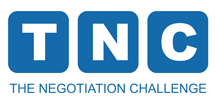Cognitive biases in negotiation refer to systematic patterns of thinking or decision-making that can lead negotiators to deviate from rational or logical judgment. These biases are a result of the brain’s attempt to simplify complex information processing and make quick judgments based on mental shortcuts, known as heuristics. While heuristics can be helpful in many situations, they can also introduce errors and distortions in negotiation, influencing how negotiators perceive, interpret, and respond to information.
Cognitive biases can impact various aspects of negotiation, such as:
- Information Processing: Biases can affect how negotiators interpret and recall information, leading to selective attention or memory biases.
- Decision-Making: Biases can influence the evaluation of options and the tendency to overvalue certain information while undervaluing others.
- Risk Perception: Biases can impact how negotiators perceive and respond to risks, leading to risk aversion or risk-seeking behavior.
- Anchoring and Adjustment: The first piece of information presented in a negotiation, known as an anchor, can influence subsequent judgments and offers.
- Overconfidence: Negotiators may overestimate their abilities or the likelihood of achieving certain outcomes, leading to suboptimal decisions.
- Confirmation Bias: The tendency to seek and interpret information that confirms preexisting beliefs can lead to narrow and biased information gathering.
- Endowment Effect: People tend to value objects or resources they possess more than identical ones they do not, leading to challenges in exchanging value.
- Sunk Cost Fallacy: Continuing a course of action based on past investments, even when it is no longer in one’s best interest.
- Negativity Bias: Giving greater weight to negative information or outcomes over positive ones.
- Escalation of Commitment: Continuing to invest resources in a failing negotiation strategy due to a desire to justify past investments.
- Reactance: A negative reaction to perceived attempts to restrict one’s freedom of choice, potentially hindering cooperation.
- Availability Heuristic: Overrelying on readily available information when making decisions, even if it is not representative or reliable.
Awareness of these cognitive biases is crucial for negotiators to make more informed and rational decisions. Mitigating the impact of cognitive biases can involve strategies such as seeking diverse perspectives, taking time to reflect on decisions, considering alternative viewpoints, and using decision-making frameworks that encourage a more systematic and balanced approach. By recognizing and addressing cognitive biases, negotiators can enhance their ability to find mutually beneficial solutions and avoid common pitfalls in the negotiation process.
